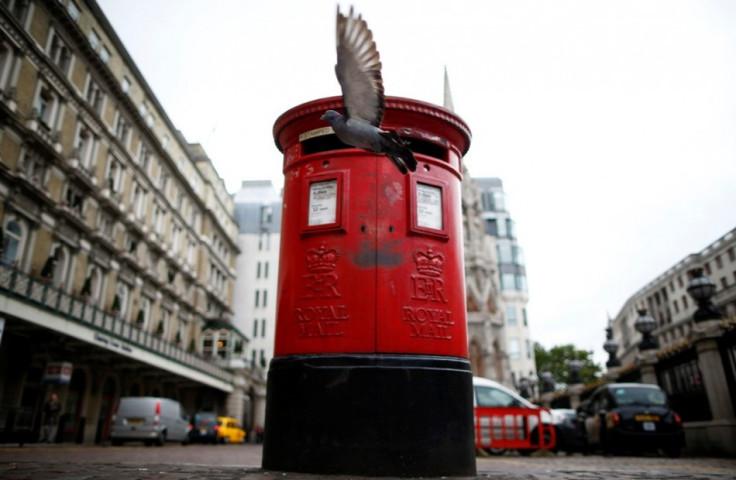Royal Mail IPO: Investment Banks Say Shares Were Underpriced

The UK government disregarded the opinions of two investment banks that valued postal company Royal Mail at £5bn in June, much more than the government's final valuation.
Two banks seeking to lead the share sale said Royal Mail shares might be worth up to £5 (500p) each, the Financial Times reported.
Royal Mail shares touched the 500p mark in trading on 18 October, a 51% leap on the government's contentious offer price of 330p, a week after their London Stock Exchange debut.
However, business select committee member Nadhim Zahawi MP said he believed the government had attached the correct value to the shares.
Goldman Sachs and UBS were the global coordinators that advised the government on the final price, which was endorsed by the government's independent adviser Lazard.
"The right thing to do is to bring in as many banks as possible. Ones that work closely with the Royal Mail, ones that advise the government. When you are trying to get a placing that large away, what you don't want is egg on your face if it doesn't get the investment community excited," Conservative MP Zahawi told the BBC.
"It feels to me that this story is a bit of sour grapes from a couple of banks who weren't very close to the business.
"Let's look at the share price in six months' time when the froth has gone away when you take out the initial spike and where the shares settle. When you look at comparators ie on dividend on yield on profitability, I think the price was just about right," said Zahawi.
"The problem to remember as well is that the government still has a substantial shareholding that at some stage it will want to sell down," he added. The government still owns 30% of the company, assuming it exercises in full its over-allotment option.
Zahawi's support came a day after Business Secretary Vince Cable blamed the threat of union strike action for depressing the flotation price of Royal Mail stock.
In a letter to the select committee, Cable said: "There were some investors who stated that they were not willing to invest at all and many others who focused on the business and financial implications of strike action."
In response, Communication Workers' Union (CWU) general secretary Billy Hayes said: "For Vince Cable to blame the low share price on the possible threat of industrial action is laughable.
"This appears to be Vince Cable's own 'froth' in a woeful attempt to deflect blame for losing the Treasury such a significant sum."
Troubled IPO
Royal Mail staff were allocated 10% of Royal Mail shares. Of the remainder available, 67% were for institutional investors and 33% for retail investors.
The flotation has not been without its problems. Aside from the debate over the offer price, many retail investors have complained about not yet receiving their share certificates, leaving them unable to sell their holding and capitalise on the surge in value.
Moreover, those who had originally applied for an amount of shares in excess of their eventual allocation are awaiting refunds. The money, to be returned by 21 October, is being held by the government in an account on which it is making interest.
CWU Strike
Unions have opposed the privatisation over concern at potential job losses and worsening working conditions.
The Communication Workers Union (CWU) balloted its members on strike action and more than three-quarters of the 72,019 polled backed a walk out.
A strike is set for 4 November unless Royal Mail bosses and the union can agree a deal.
© Copyright IBTimes 2025. All rights reserved.






















